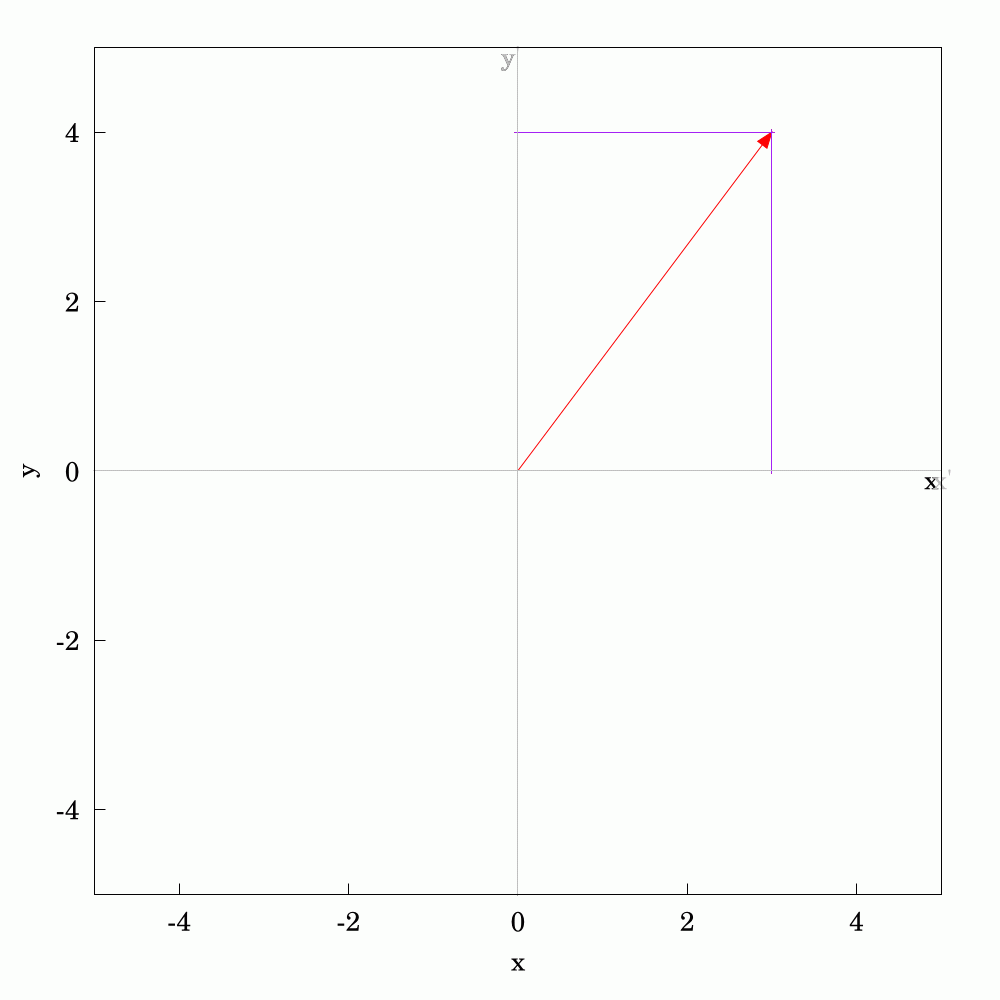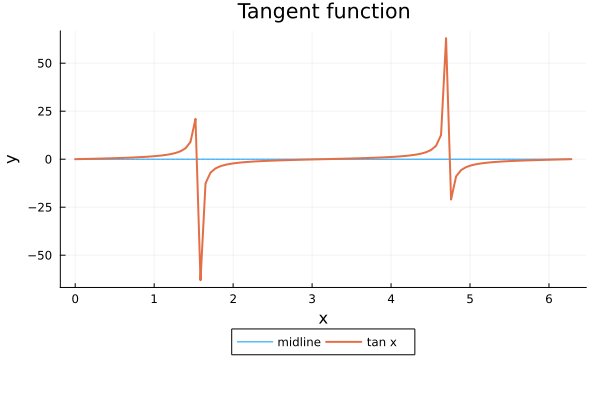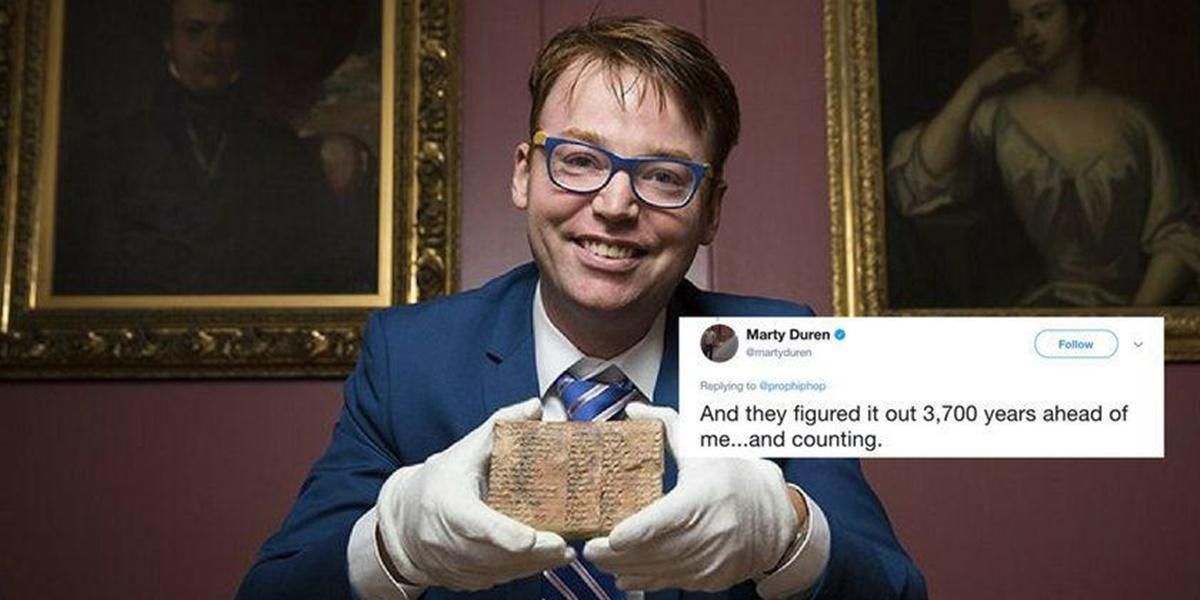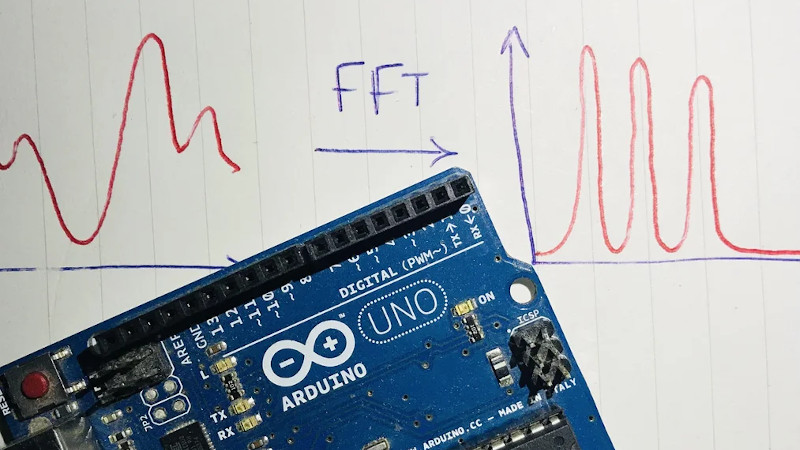#trigonometry
3,700-year-old Babylonian stone tablet gets translated, changes history
They were doing trigonometry 1500 years before the Greeks.
Most historians have credited the Greeks with creating the study of triangles' sides and angles, but this tablet presents indisputable evidence that the Babylonians were using the technique 1,500 years before the Greeks ever were.
Mansfield and his team are, understandably, incredibly proud. What they discovered is that the tablet is actually an ancient trigonometry table.
#History #Mathematics #Babylon #Trigonometry #Archeology #Amazing
https://www.upworthy.com/3700-year-old-babylonian-stone-tablet-gets-translated-changes-history-rp5


3,700-year-old Babylonian stone tablet gets translated, changes history
They were doing trigonometry 1500 years before the Greeks.
Most historians have credited the Greeks with creating the study of triangles' sides and angles, but this tablet presents indisputable evidence that the Babylonians were using the technique 1,500 years before the Greeks ever were.
Mansfield and his team are, understandably, incredibly proud. What they discovered is that the tablet is actually an ancient trigonometry table.
#History #Mathematics #Babylon #Trigonometry #Archeology #Amazing
https://www.upworthy.com/3700-year-old-babylonian-stone-tablet-gets-translated-changes-history-rp5

It's straightforward to calculate the #components of a #2D #vector given that you have a pre-defined set of #axes. Often, we talk about #cartesian #coordinates. If the vector changes, whether in #magnitude or #direction, we can calculate the updated components too. The converse question is what if the the vector is held constant and you change or #rotate the axes? The components in the new coordinate system can be found with a little bit of #trigonometry and #algebra. As vectors are #first-order #tensors, they are much simpler to calculate than quantities like stress for which I've also made an animation for if you search for the hashtag #tensors.
In this animation, you can see the components changing as the axes go through a full rotation.
USGS Volcanoes🌋 auf Twitter: "Geologists measure heights of lava fountains to assess eruption dynamics. You can measure too! How? Measure angles to top & bottom of fountain; estimate distance using a map; use trig to calculate vertical distances for each angle; add together for height. https://t.co/UcM3F7Urqg https://t.co/E45FHGmq4h" / Twitter
And that kids is where you need your #math skills in real life-
#trigonometry
https://twitter.com/USGSVolcanoes/status/1454253978607357953
Geologists measure heights of lava fountains to assess eruption dynamics. You can measure too! How? Measure angles to top & bottom of fountain; estimate distance using a map; use trig to calculate vertical distances for each angle; add together for height. https://t.co/UcM3F7Urqg pic.twitter.com/E45FHGmq4h
— USGS Volcanoes🌋 (@USGSVolcanoes) October 30, 2021




